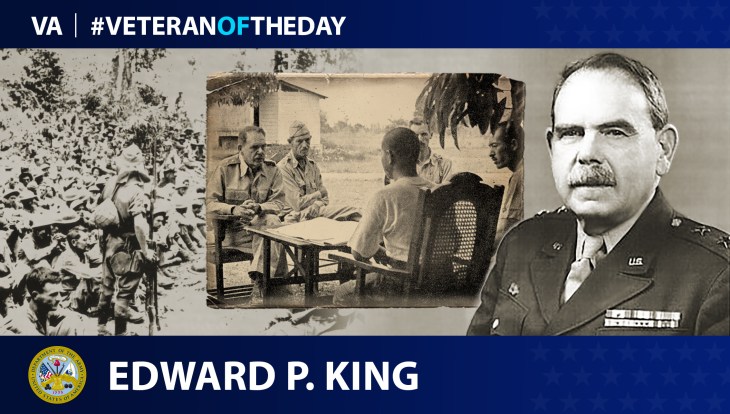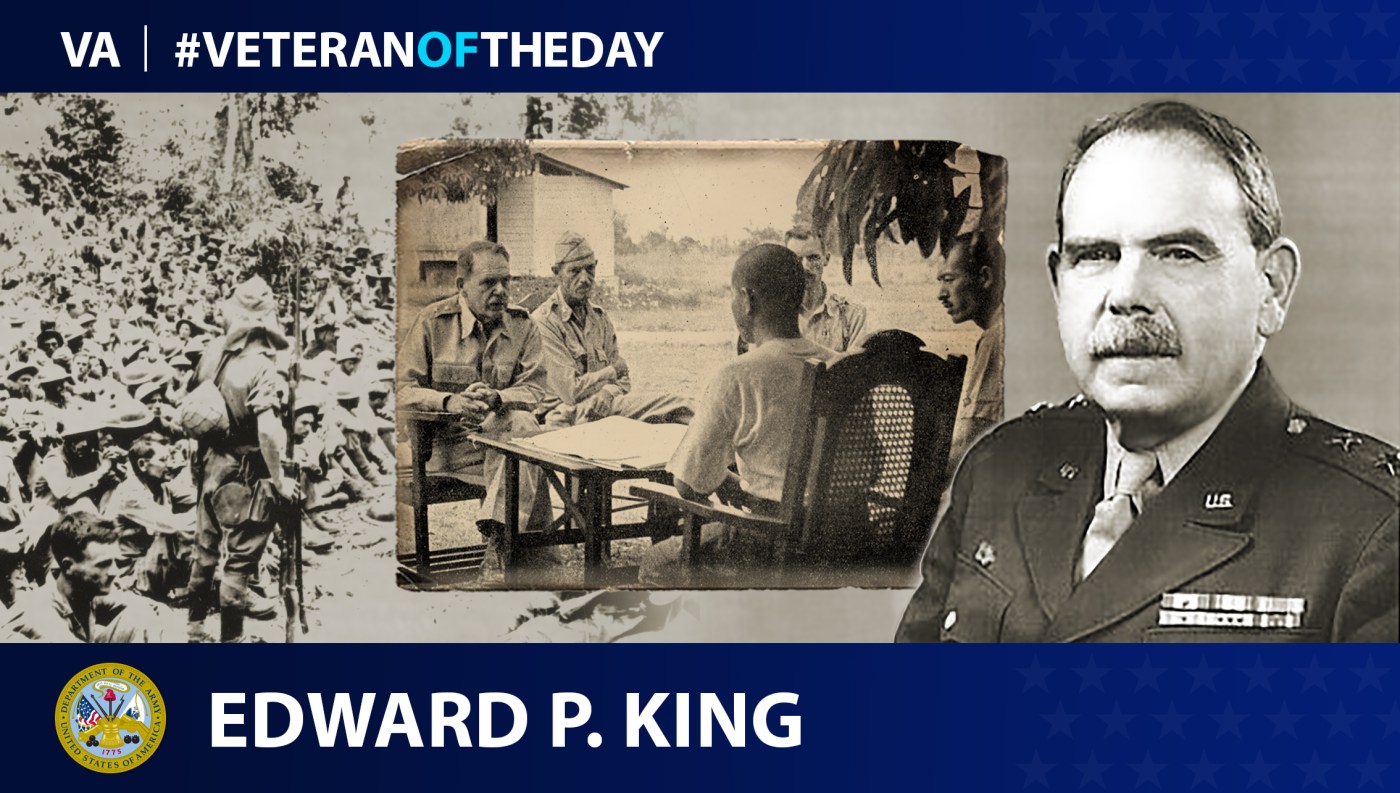
Today’s #VeteranOfTheDay is Army Veteran Edward P. King, who chose to surrender to Imperial Japanese forces during World War II rather than have his troops be subject to unnecessary slaughter.
April 9 is National Former Prisoner of War (POW) Recognition Day. The man most associated with this remembrance is Maj. Gen. Edward Postell King Jr. (July 4, 1884, to Aug. 31, 1958), who on this day in 1942 surrendered his command, in violation of direct orders, on the Bataan Peninsula in the Philippines to the invading Imperial Japanese forces. Not doing so would have led to the pointless slaughter of his sick, starved and exhausted soldiers, as well as of the civilian population under his control.
A decorated artilleryman, King made the moral choice to risk his career and reputation by refusing to sacrifice his men for no military gain. His men had fought for four months with antiquated weapons, dwindling resources and no hope of rescue. The approximately 75,000 troops (63,000 Filipinos and 12,000 Americans) were the largest contingent of U.S. soldiers ever to surrender to the enemy. According to one source, King emphasized to his men that he surrendered them—they did not surrender, for they “had no alternative but to obey [his] order.”
Upon surrender, the troops and civilians were forced on the infamous Bataan Death March up the peninsula to a makeshift POW camp 100 miles north. King and the survivors became POWs for the next three and a half years, enduring abuse, starvation and torture in the Philippines, Formosa and Manchuria. His men were sent across the Japanese empire for slave labor. By the war’s end in August 1945, nearly half of the men surrendered on Bataan had perished in captivity.
A native of Georgia, King received a law degree from the University of Georgia. During World War I, he earned a Distinguished Service Medal as a chief assistant to the Chief of Artillery. Recognized as a leader, he attended and taught at both the Army and Navy War Colleges after the war. He was sent to the Philippines in 1940, where he became Gen. Douglas MacArthur’s second-ranking ground general in the United States Army Forces in the Far East.
King assumed command of the American-Filipino forces on Bataan on March 12, 1942, shortly after MacArthur was evacuated from the Philippines to Australia. He oversaw a tenacious and courageous defense of the Peninsula. He expected, however, to be court-martialed after the war. He was not, but neither was he promoted or invited to be on the deck of the USS Missouri for Japan’s formal surrender.
Over the course of his service, King received an Army Distinguished Service Medal with oak leaf cluster, a World War I Victory Medal, an American Defense Service Medal with “Foreign Service” clasp, an Asiatic-Pacific Campaign Medal with three service stars, a World War II Victory Medal and a Philippine Defense Medal with service star.
He died peacefully at his home in Brunswick, Georgia, on Aug. 31, 1958.
We honor his service.
Nominate a Veteran for #VeteranOfTheDay
Do you want to light up the face of a special Veteran? Have you been wondering how to tell your Veteran they are special to you? You’re in luck! VA’s #VeteranOfTheDay social media feature is an opportunity to highlight your Veteran and his/her service.
It’s easy to nominate a Veteran. All it takes is an email to newmedia@va.gov with as much information as you can put together, along with some good photos. Visit our blog post about nominating to learn how to create the best submission.
Writer: Mindy Kotler Smith
Editors: Cynthia Xu, Cate Manning
Researcher: Christopher Rosenquist
Graphic Designer: Kiki Kelley
Topics in this story
More Stories
This week’s Honoring Veterans Spotlight honors the service of Marine Corps Veteran Rodney Sickmann, who served in Iran.
This week’s Honoring Veterans Spotlight honors the service of Army Veteran Mary Edwards Walker.
This week’s Honoring Veterans Spotlight honors the service of Marine Corps Veteran Opha May Johnson, who served during World War I.






Why did he not receive a POW medal?